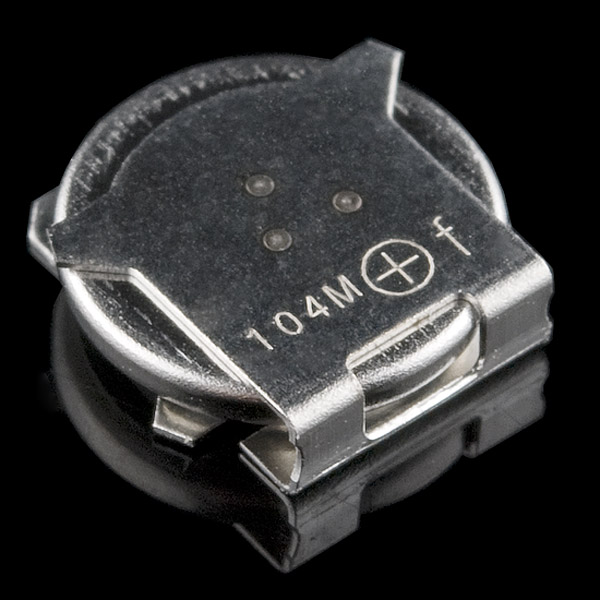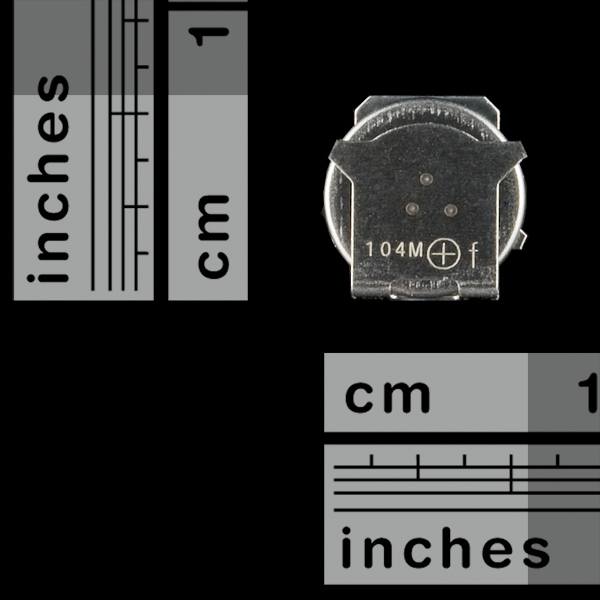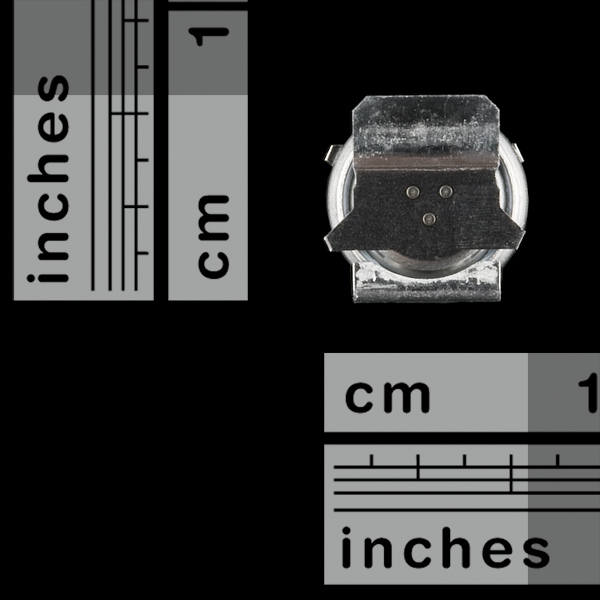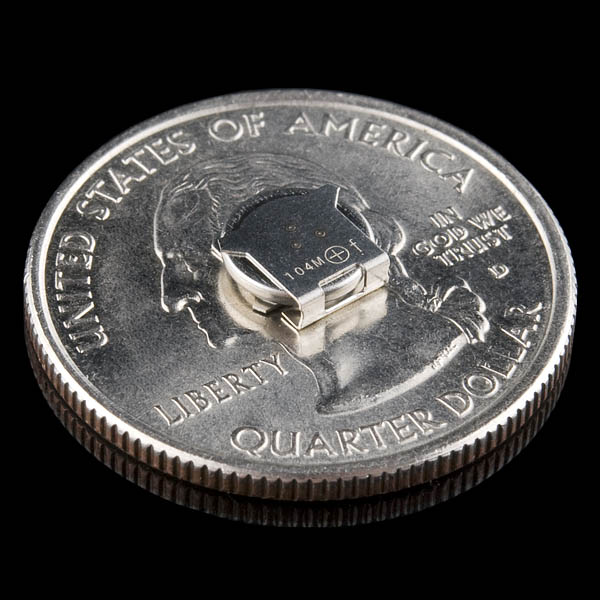Super Capacitor - 0.2F/3.3V
Replacement: None. We are no longer carrying this super cap in our catalog. This page is for reference only.
This tiny surface mount capacitor has a total capacity of 0.2F, which is a lot for something so small. This small cap can be charged up and then slowly dissapated running an entire system for hours. Combine two in series for 0.1F/6.6V. Do not over voltage or reverse polarize these capacitors.
- Datasheet (EEC-EN0F204J2)
Comments
Looking for answers to technical questions?
We welcome your comments and suggestions below. However, if you are looking for solutions to technical questions please see our Technical Assistance page.
Customer Reviews
No reviews yet.





Oops. Voltage should double in series.
Yep, duh. Thanks.
This product is no longer carried by SparkFun, but I can't seem to find it anywhere! Does anyone know of a good replacement part? I'm interested in using this with the Venus GPS BoB
It looks like this is Panasonic part EEC-EN0F204J2 although it also looks like we stopped carrying it because they stopped making it. Good luck on your search.
Even Super Caps have bad Energy Density
As far as I'm aware the real advantage of the technology is actually power density, which is wasted on a 3.3V system running at 10uA...
Will sparkfun ever stock bigger, higher voltage caps
for things like lighting fuses or just generaly burning things? I dont know where to look, but I've seen it done.
The maximum operating voltage rating is 3.3V.
Just to make sure...
So if you want to power a 3.3v device from it you should atleast use 2 in series, right!? As you need to have some margin on voltage rating like with any capacitor, due to wear/tear/aging. (usually atleast double the operating voltag iirc)
Or would it require a more complicated circuit for a 3.3v operating device?
Note that this particular supercapacitor has a very low operating current rating (10 uA). This will limit the applications that it can be used in. This operating current is suitable for memory retention or real time clock backup power, but not much else. For a capacitor that'll be able to power your circuit, try COM-00746 instead.
Unlike tantalum and electrolytic capacitors, it's not uncommon to run a supercapacitor at it's rated voltage, so using this in a 3.3V circuit is ok.
In general be careful when connecting supercapacitors in series. In order to avoid exceeding the voltage rating of each individual capacitor a cell balancing circuit of some type is needed.
10uA : If I decide to read the datasheet, I better read all of it. Oops... :o
I forgot that I learned that "overdimension the voltage rating" was in relation to using just electrolytic caps, that are known to decay over time. Tantalum capacitors also like to explode on overvoltage. Forgot those aswel. Good point.
I disagree with nojo and second your idea that you should use two in series. The capacitance will be 0.1F, of course. I'd charge the two up to around 5V, and run the system off of an LDO.
but its a 3.3V system.... 6.6V will FRY 3.3V systems,.....
but... if you only charge up to 3.3v, oh well that makes sense..... :( i cant think straight
"and run the system -} off of an LDO [voltage regulator]. {- "
Don't use a supercap and an LDO. Instead, design your 3.3V system to run down to 1.8V or less (many microcontrollers do this) and cut out the LDO completely - they (linear regulators in general) just turn excess voltage to heat, so you're just wasting all that energy. And don't bother with a tiny, efficient buck regulator either because at the low operating voltages of supercaps you can usually just run a microcontroller directly, which gives your fine-grained (software!) control of your power use.
no, if you use them in series you will end up with 6.6V and 0.1 F . (and fry your 3.3V system)
you can use just one to power a 3.3V system, if you use two in parallel the charge on the capacitors will last longer
(answering only your first question)